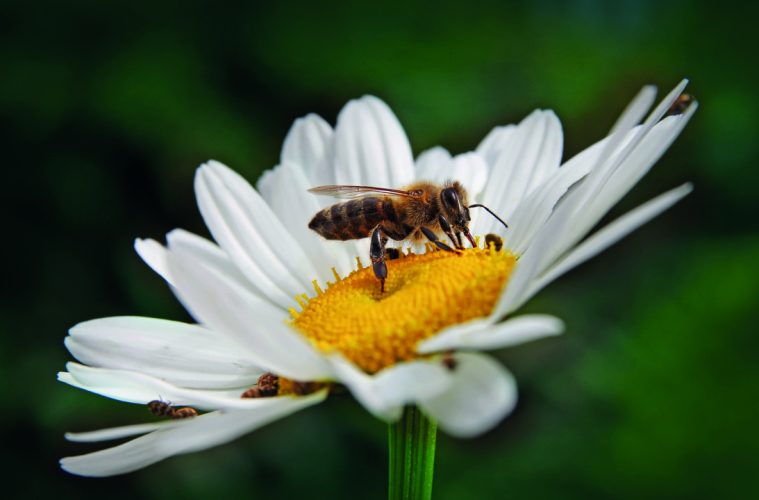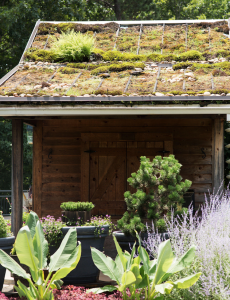Sustainability is all the rage, especially in the garden. Try these quick tricks to up your environmental game with these sustainable garden tips:
Swap electric garden lights for solar
New-generation solar lighting has come on leaps and bounds, and you’ll find everything from lanterns and fairy lights to path and wall lamps. Place them in direct sun to charge them up during the day.
Let wildlife give you a helping hand
Eliminate the need for synthetic insecticides. Invite garden friends by leaving piles of leaves and logs or birds that are partial to a caterpillar or two with food and nesting boxes. Ladybirds eat aphids, so plant sunflowers or marigolds to attract them – and don’t forget those crucial pollinators, the bees. Numbers have declined worldwide, mainly due to the loss of wildflowers.
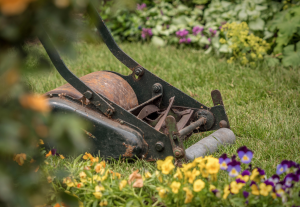
Via Alamy
Go manual for the environment
One petrol lawnmower emits as much pollution in an hour as driving a car for 160km. Plus, you get the extra workout in with a manual mower.
Plants don’t mind a second-hand drink
Using grey water from your kitchen sink, shower or bath is a great way to reduce water usage. Just avoid harmful chemicals, such as bleach or disinfectants. And invest in plants that are not so thirsty, such as lavender and cacti.
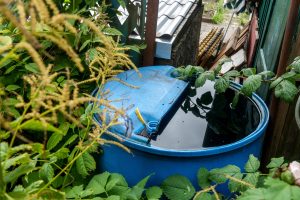
Via Alamy
No ifs, just butts!
Collecting rainwater is a no-brainer, and it’s free! Connect a water butt to your roof guttering to water the lawn, wash the car or rinse your windows. Being water-wise is always a step towards being kinder to the environment.
Choose your materials wisely
Buying materials, like paving stones sourced locally, will help reduce your carbon footprint and support local businesses.
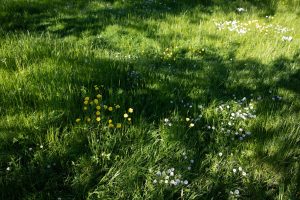
Via Alamy
Consider letting go of lawns
Neatly manicured gardens leave little room for wildlife and the natural environment Let nature take its course in even one small section of your space, and you’ll be rewarded with all kinds of animal, bird and insect visitors. One of our sustainable garden tips is to consider removing lawns altogether.
Green roof
Living roofs, built on waterproof membranes, can save energy through insulation, increase biodiversity and reduce noise. They’ve also been found to cut air pollution. Install one on a garden building, shed or garage sturdy enough to take the weight.
Veggie patches
Why waste fuel, time and energy on trips to the supermarket when you can enjoy the fruits of your own harvest? Think about the fruit and veg you most enjoy, the type and size of garden you have and the time available to you before planting your own patch. The environment benefits from moves away from large-scale monoculture, so why not do your small part?
Compost really is a wonderful thing
It provides valuable habitat for wildlife, saves you from dumping kitchen waste and returns nutrients to the soil. Buy a recycled plastic compost bin or make your own box, sitting it on the soil in a sunny spot.
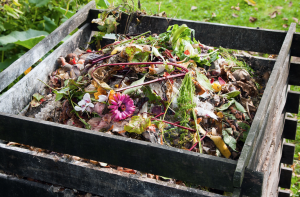
Written by Michelle Hather/Future PLC
READ MORE: SOLAR POWER: IS SOLAR WORTH THE INVESTMENT?

